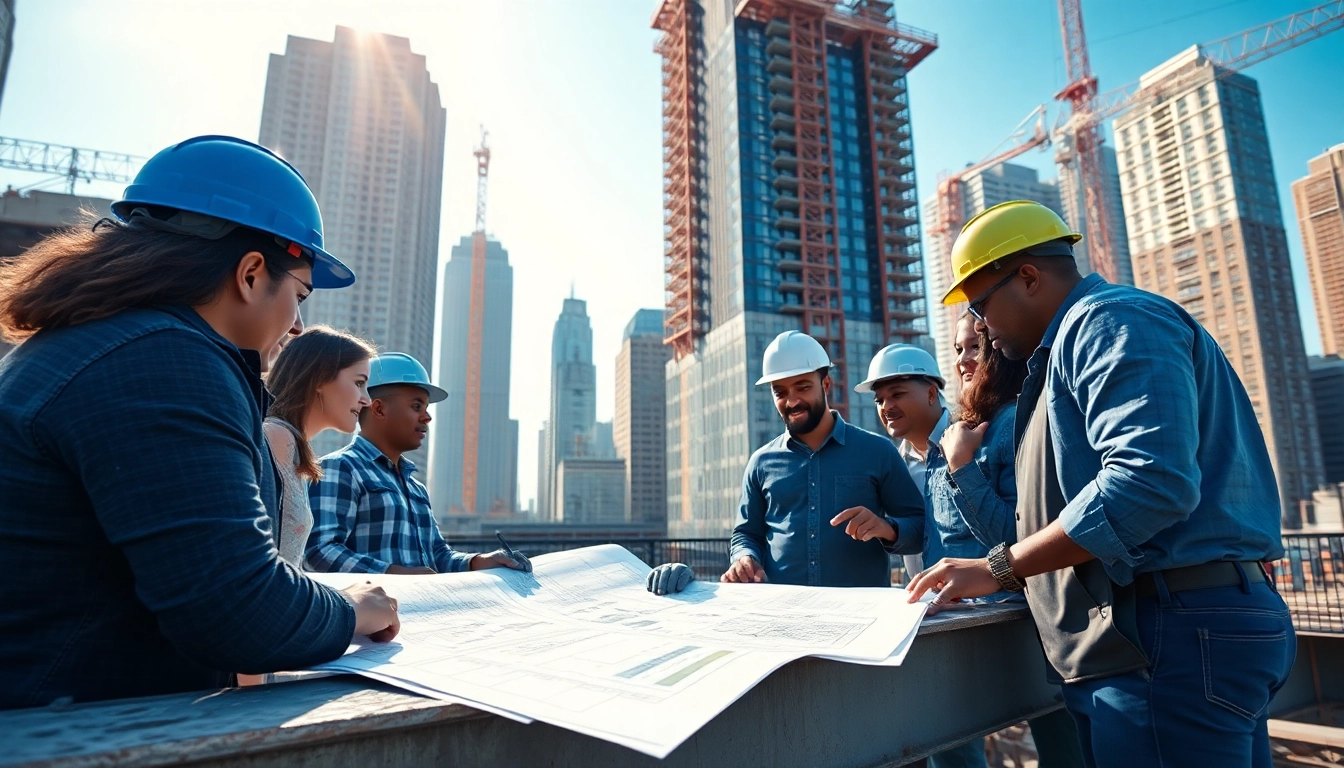Understanding the Importance of a New York City General Contractor
When embarking on a construction or renovation project in New York City, it’s crucial to understand the role of a New York City General Contractor. This professional serves as the backbone of any construction endeavor, orchestrating a myriad of essential components that ensure a project is executed smoothly and successfully. But what does it truly mean to hire a general contractor, and why is their role pivotal, especially in the unique landscape of New York City? In this article, we will explore the multifaceted responsibilities and benefits of collaborating with a skilled New York City General Contractor.
Defining the Role of a General Contractor
A general contractor is essentially the project manager of a construction project. They are responsible for overseeing the entirety of the construction process, ensuring that everything runs like a well-oiled machine. This includes managing labor, procuring materials, scheduling inspections, and permitting—all of which are vital to staying on schedule and within budget. Additionally, general contractors are often the primary point of contact for subcontractors, suppliers, and clients, serving to consolidate communication and streamline workflows.
Key Responsibilities in Construction Projects
The responsibilities of a New York City General Contractor encompass a wide range of tasks, including:
- Project Planning: Developing a comprehensive project plan that sets timelines, budgets, and resource allocations.
- Hiring Subcontractors: Selecting and managing subcontractors who specialize in various trades, such as plumbing, electrical, and carpentry.
- Procurement of Materials: Sourcing and purchasing the necessary materials while ensuring quality and cost-effectiveness.
- Site Management: Overseeing daily operations on-site to ensure work is progressing as scheduled and adhering to safety regulations.
- Budget Management: Monitoring expenses and managing the overall budget while anticipating cost overruns and financial challenges.
- Communication: Facilitating clear communication between all parties involved, including clients, subcontractors, and suppliers.
The Benefits of Hiring a New York City General Contractor
Employing a seasoned New York City General Contractor comes with a host of benefits that can significantly affect the success of your project:
- Expertise: General contractors possess extensive industry knowledge and experience, which allows them to navigate potential pitfalls.
- Time-Saving: By managing the numerous intricate details of the project, contractors free clients to focus on other priorities.
- Access to Resources: Contractors typically have established relationships with subcontractors and suppliers, enabling better pricing and quality of materials.
- Risk Management: They adeptly manage project risks by conducting regular assessments and adjusting course as necessary.
Essential Skills of a Successful New York City General Contractor
The skill set required for a successful New York City General Contractor is both diverse and specialized. Here are some of the critical skills that distinguish the best contractors in the field:
Project Management and Organization
Effective project management skills are paramount for any general contractor. This includes not only the ability to plan timelines and budgets but also the organizational skills to coordinate activities in a fast-paced construction environment. Projects often involve multiple moving parts, so staying organized helps mitigate delays and potential issues.
Negotiation and Communication Skills
General contractors must excel in negotiation, whether they are discussing prices with suppliers or mediating disagreements between subcontractors. Clear and effective communication is equally important, as it ensures all parties are aligned and understand their respective roles.
Technical Knowledge and Expertise
A robust understanding of construction practices, building codes, and safety regulations is essential for general contractors. This technical knowledge helps them make informed decisions that affect project outcomes and compliance with local laws—a particularly vital factor in New York City’s regulatory landscape.
Challenges Faced by a New York City General Contractor
Working in New York City presents unique challenges for general contractors, which necessitate careful planning and adaptive strategies:
Regulatory Compliance and Permitting Issues
New York City has one of the most complex regulatory environments in the country. General contractors must navigate a web of local laws, building codes, zoning regulations, and safety standards. Ensuring compliance often requires extensive paperwork and time-consuming processes, thus necessitating contractors to stay well-informed and proactive.
Managing Client Expectations and Budget Constraints
Clients often have high expectations for timelines and budgets. General contractors are tasked with balancing these expectations with reality, which can sometimes lead to conflicts. Open communication and realistic project modeling are essential to manage these dynamics effectively.
Adapting to NYC’s Unique Construction Environment
The unique environment of New York City can complicate construction projects. Limited space, high population density, logistic challenges, and the necessity for specialized equipment all contribute to the complexity. A skilled general contractor is adept at navigating these challenges to keep projects on track.
Finding the Right New York City General Contractor
Identifying the right general contractor for your project is crucial. Here are some steps to consider when evaluating potential candidates:
Evaluating Potential Contractors
Start by researching contractors in your area. Look for those with a proven track record, experience in relevant types of construction, and positive client reviews. Verify their licenses and insurance, as these are critical for compliance and protection.
Questions to Ask Before Hiring
When interviewing potential contractors, consider asking the following key questions:
- What is your experience with projects similar to mine?
- Can you provide references from past clients?
- How do you handle project delays and unforeseen issues?
- What is your preferred method of communication throughout the project?
Understanding Contract Terms and Conditions
Before signing a contract, it’s vital to thoroughly review its terms and conditions. Pay attention to clauses related to payment schedules, change orders, warranties, and liability. A well-drafted contract will provide clarity and prevent misunderstandings down the line.
Future Trends in General Contracting in New York City
The construction industry is continually evolving, and several key trends are shaping the future of general contracting in New York City:
Sustainability and Green Building Practices
Sustainability has become a driving force in construction. The demand for green building practices—including energy-efficient materials, waste reduction strategies, and sustainable design—has risen significantly. New York City is spearheading this movement, encouraging contractors to adopt practices that benefit both the environment and the economy.
Technology Innovations in Construction
Advancements in technology are transforming the construction landscape. From Building Information Modeling (BIM) and project management software to drones and augmented reality, these tools enhance efficiency, forecast challenges, and improve communication among project teams.
The Impact of Urban Development on General Contracting
With continuous urban development, general contractors must adapt to trends such as mixed-use developments, modular construction, and smart home technology. These factors necessitate a flexible and innovative approach to construction that meets the evolving demands of urban living.



